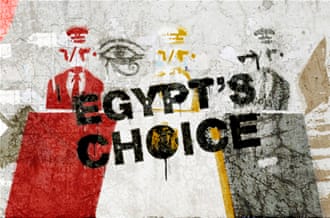http://www.aljazeera.com/news/africa/2012/06/2012612192017707612.html
| Curfews in Tunisia after overnight riots | |||||||||
Overnight curfews imposed in eight areas including Tunis after riots blamed on Salafis leave dozens of police injured.
Last Modified: 12 Jun 2012 20:06
| |||||||||

The protesters set fire to part of a courthouse during their overnight fighting with police [AFP]
| |||||||||
The Tunisian government has imposed a dusk-to-dawn curfew in eight areas of the country, including the capital, after rioting blamed on ultra-conservative Salafi Muslims left dozens of police officers injured.
The wave of violence on Monday night mostly targeted courts and other state buildings. Police in the capital Tunis fired tear gas to disperse protesters who torched a local courthouse and attacked several police stations.
Protesters blocked streets and set tyres alight in the working class Ettadamen and Sidi Hussein districts, hurling petrol bombs at police in some of the worst confrontations the city has seen since last year's revolution.
By morning, protests had spread to a number of residential districts, with young men preventing trams from passing through the Intilaqa district of the capital, where shops remained closed. There was evidence of looting in some areas, where shop windows were smashed.
The government condemned the riots as "terrorism" and vowed to punish the perpetrators; 165 people were arrested.
"[They] will be brought to justice under the anti-terror law decreed in 2003," said Mohamed Fadhel Saihi, an interior ministry official.
The clashes in Tunis came a day after a group of Salafis, who follow a strictly conservative interpretation of Islam, forced their way into an art exhibition in the upscale La Marsa suburb and defaced works they deemed offensive.
But Salafis denied involvement in the rampages, and instead called a protest after this week's Friday prayers.
The artwork that appears to have caused the most fury and polarised Tunisians spelt out the name of God using insects.
Othmane Batikh, the mufti on Tunisia, called on the constituent assembly to pass laws against blasphemy. "The sacred symbols of Islam are red lines that must not be crossed," he said.
It was the latest incident in a series of confrontations between hardline Salafis and more secular state and civil institutions, including universities, which have flared over the past year in Tunisia.
In a statement released before the protests, Ennahda, the moderate Islamist party that now leads the government, condemned what it described as provocations and insults against religion but urged its own supporters to respond peacefully.
Salafis want broader role
The violence puts Ennahda in a difficult position. While Islamists did not play a major role in the revolution, the struggle over the role of Islam in government and society has since emerged as the most divisive issue in Tunisian politics and several clashes have erupted in recent months.
Salafis want a broader role for religion in the new Tunisia, alarming secular elites who fear they will seek to impose their views and ultimately undermine the nascent democracy.
and.......
http://www.aljazeera.com/news/middleeast/2012/06/201261214526684972.html
|






No comments:
Post a Comment